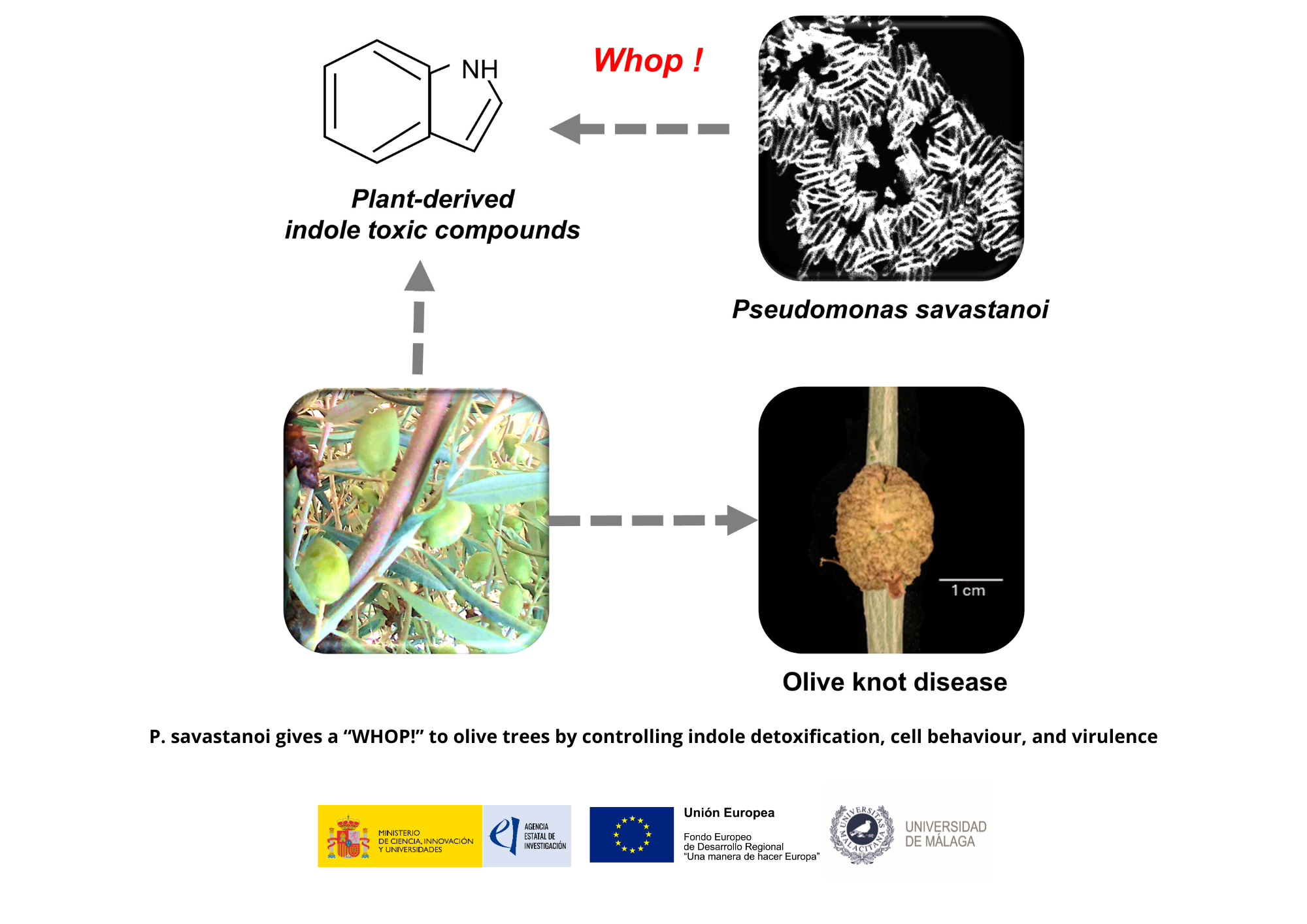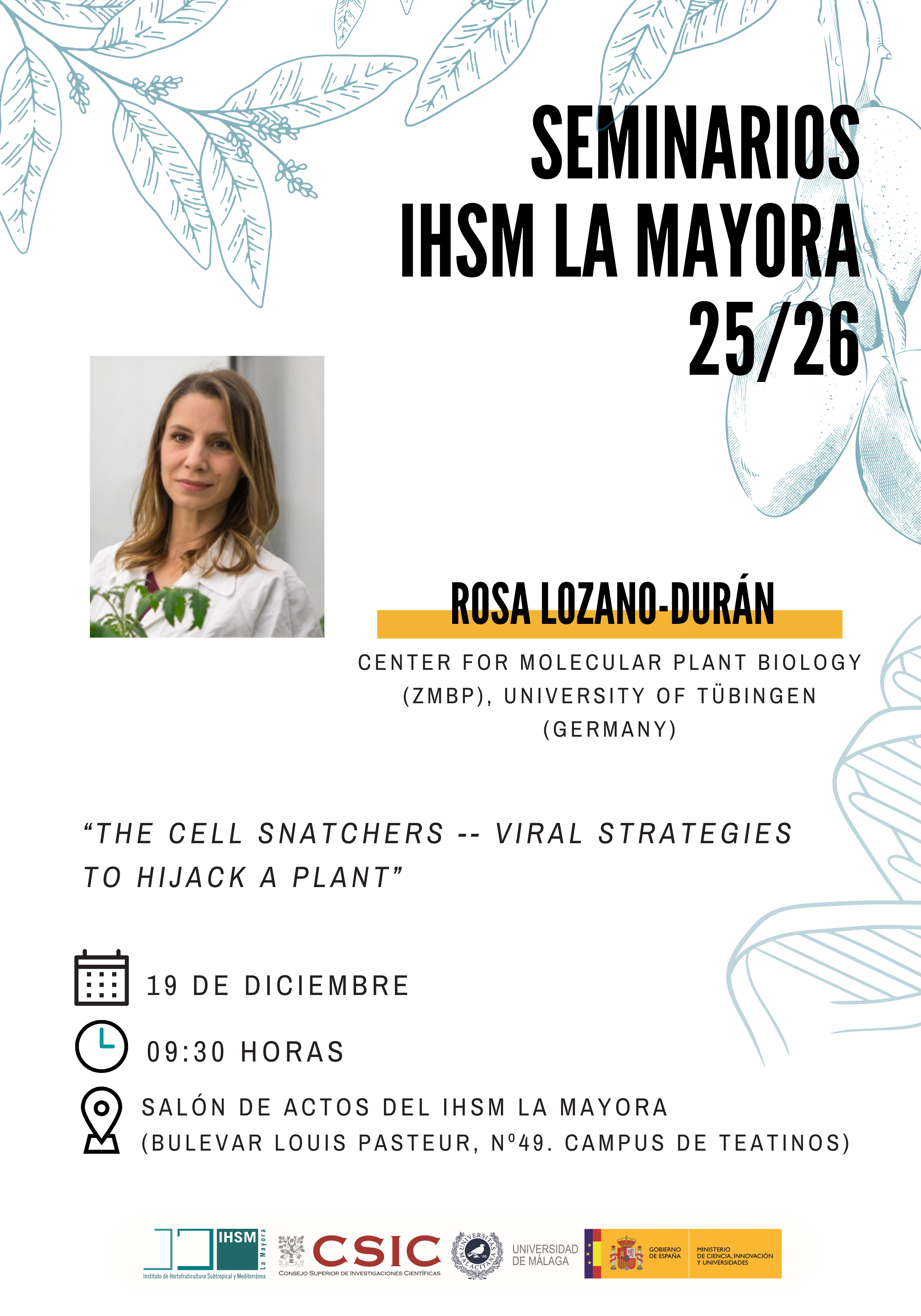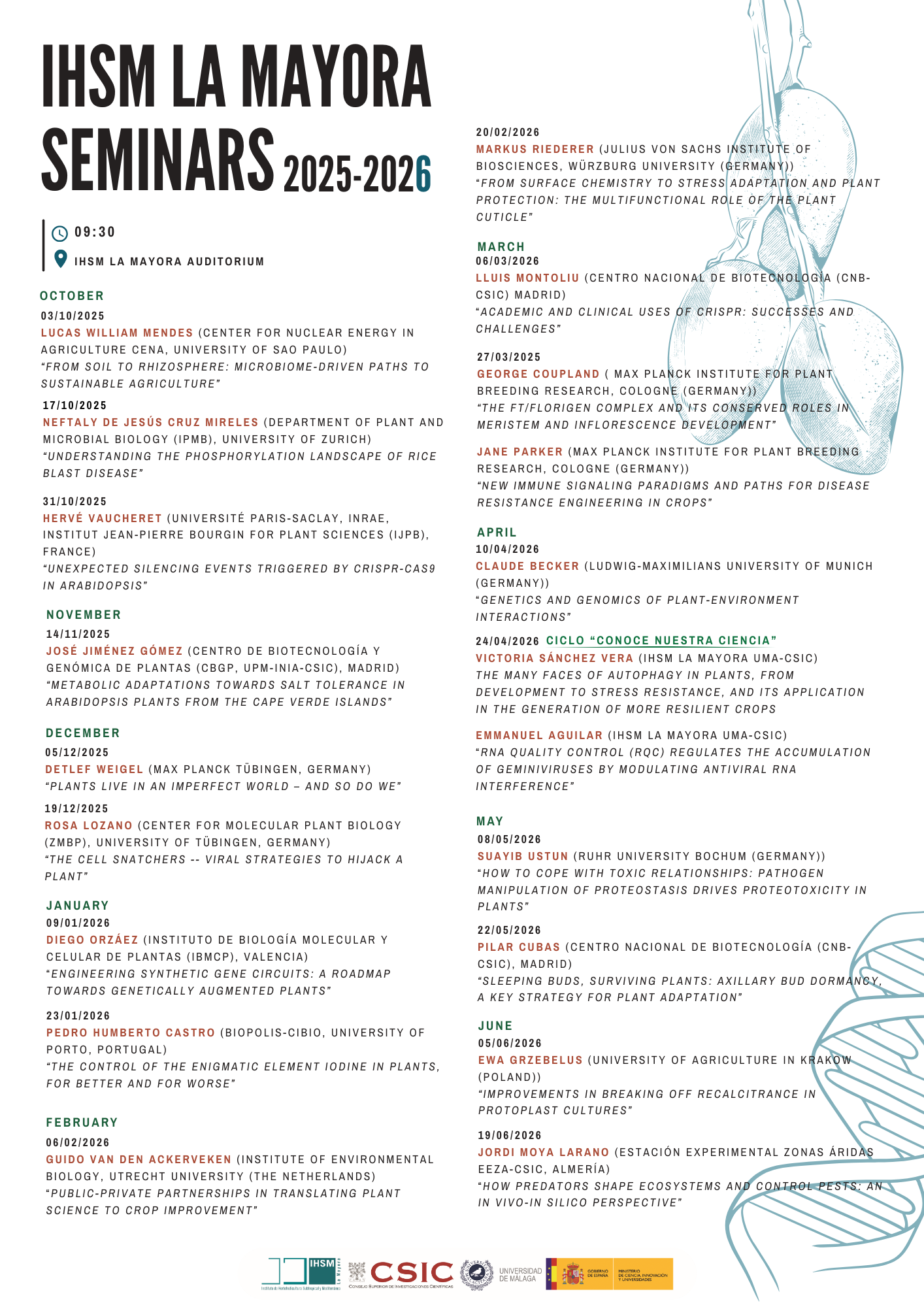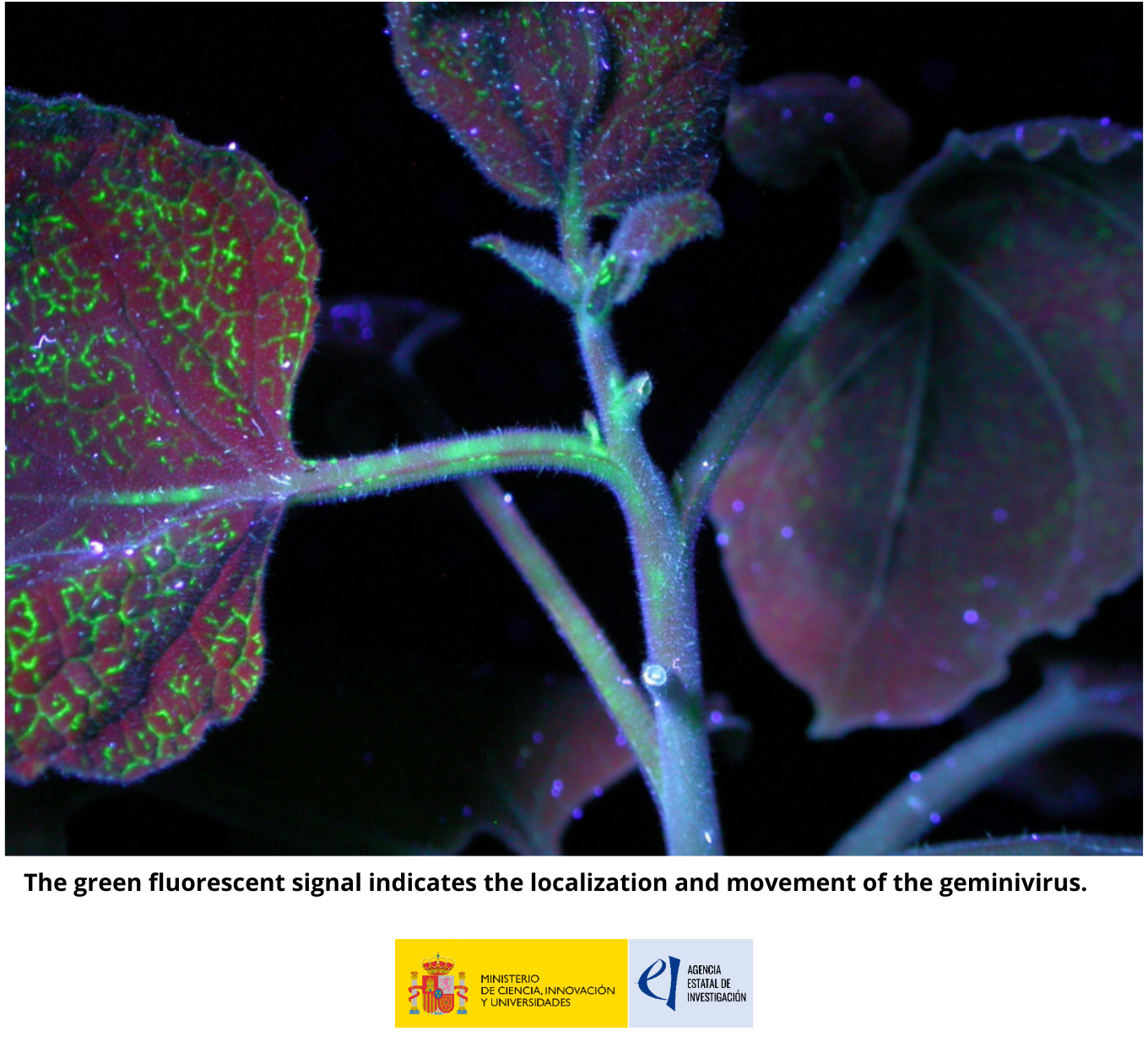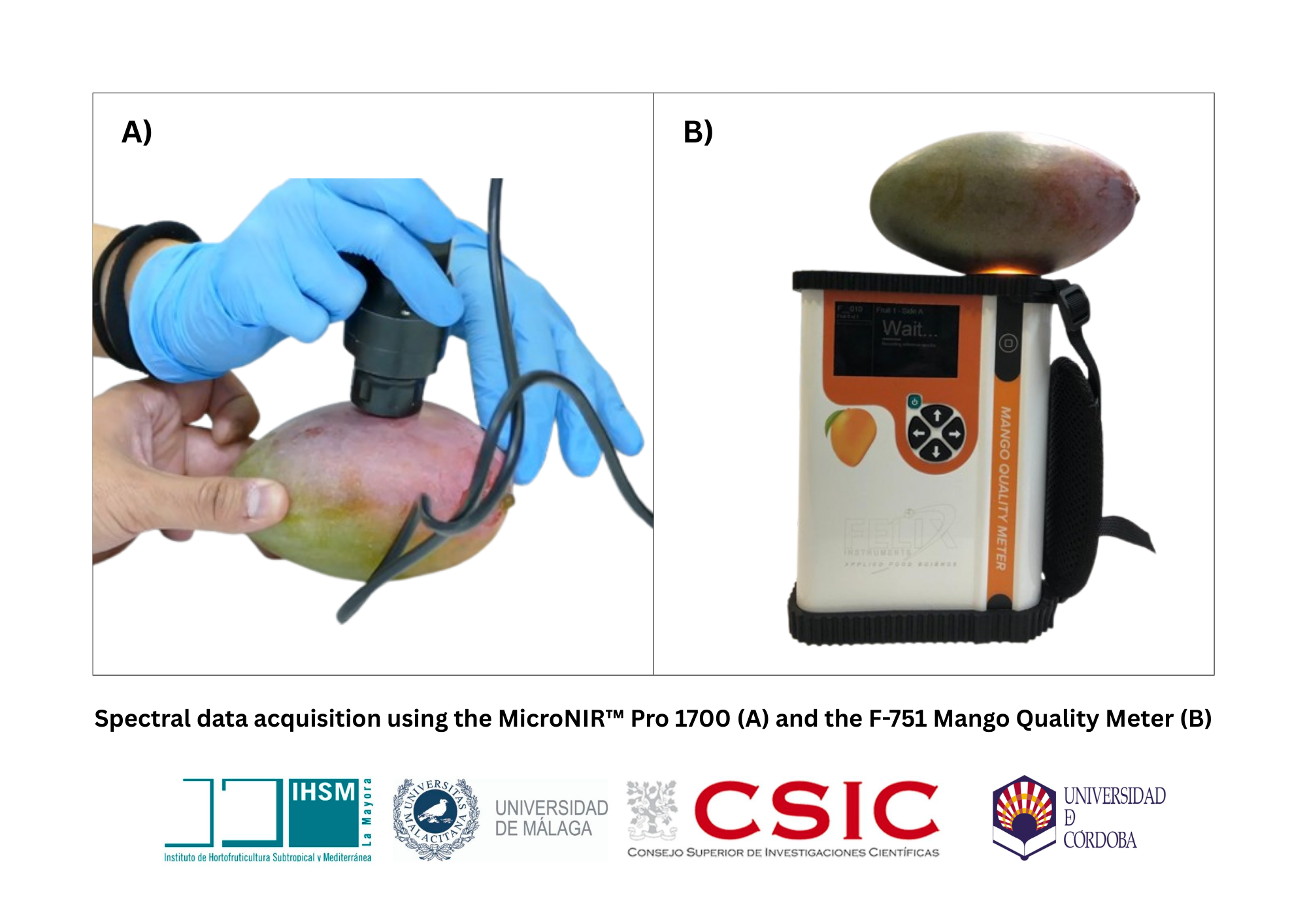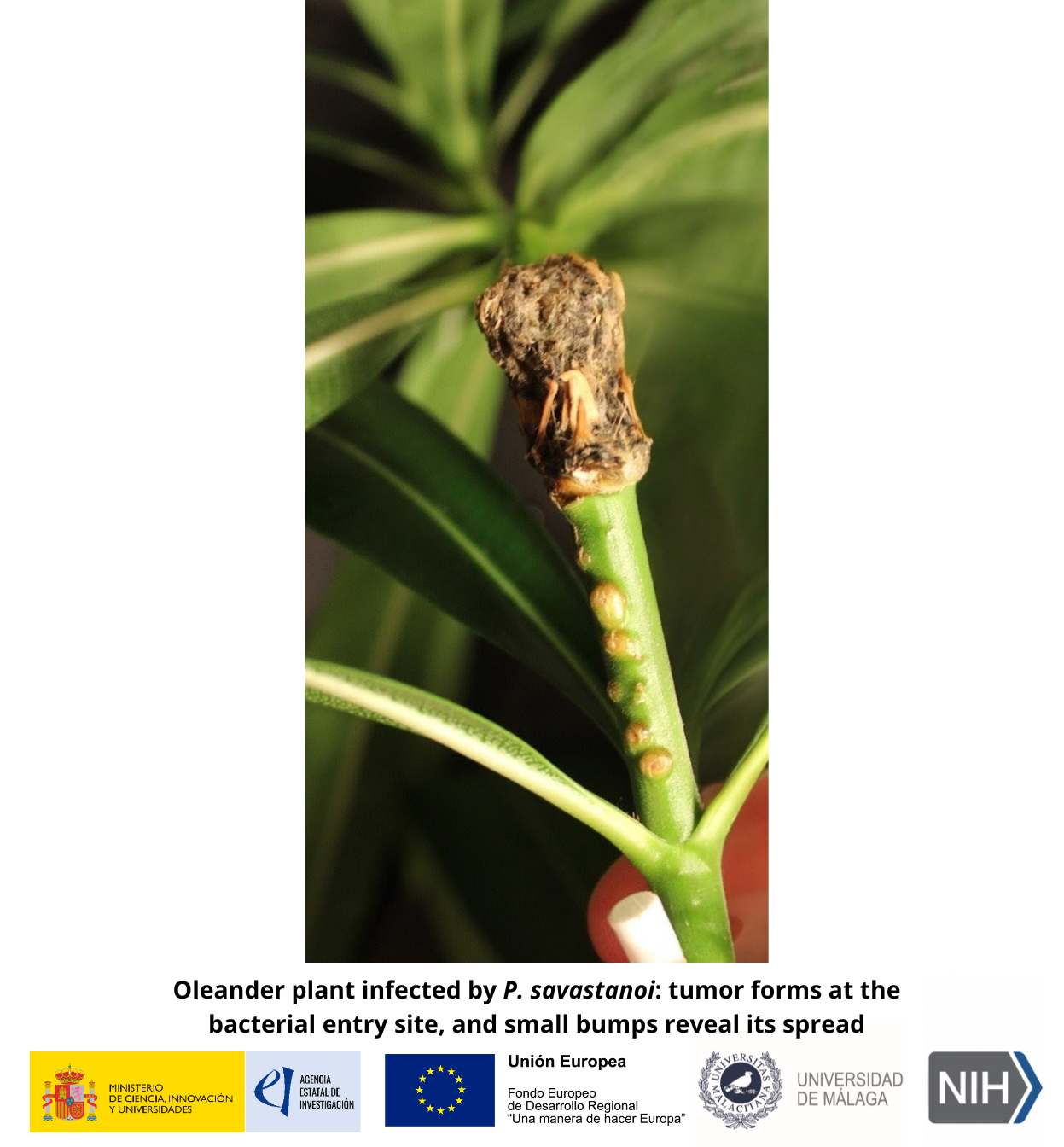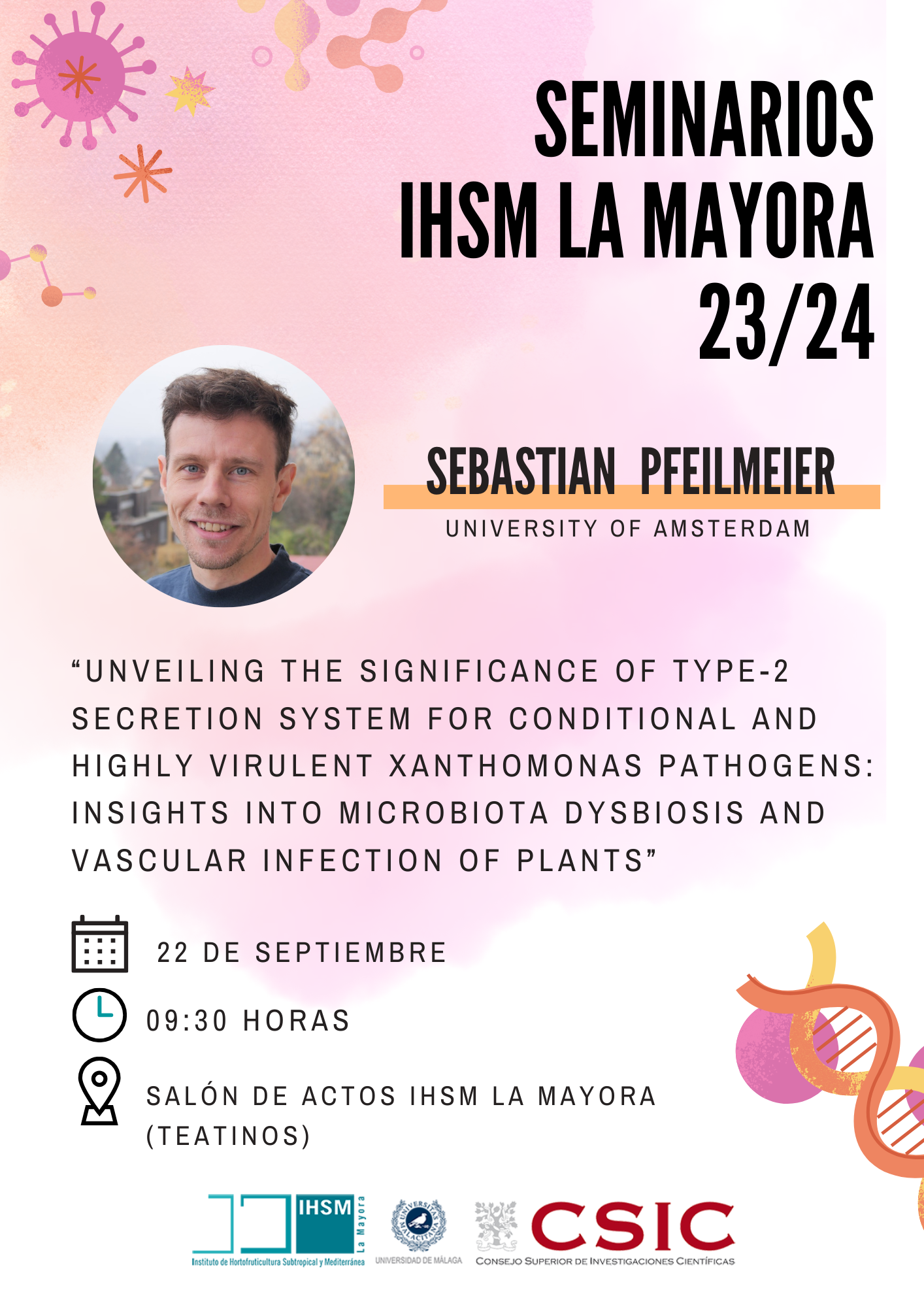
Seminarios IHSM La Mayora - Sebastian Pfeilmeier (University of Amsterdam)
Title: Unveiling the significance of type-2 secretion system for conditional and highly virulent Xanthomonas pathogens: insights into microbiota dysbiosis and vascular infection of plants The plant microbiota consists of a multitude of microorganisms that can affect plant health and fitness. Bacteria are abundant in the microbiota and act as commensals that support plant growth and protect from pathogens, while pathogenic species can cause plant disease. Xanthomonas is a genus of ubiquitous plant-associated bacteria with commensal and pathogenic lifestyles. To understand how the plant immune system maintains microbiota homeostasis, we used a gnotobiotic approach and applied a synthetic microbiota to plant mutants with defects in the immune system. We found that in Arabidopsis thaliana, the absence of NADPH oxidase RBOHD can lead to an altered leaf microbiota, including an enrichment of conditional Xanthomonas pathogens. These conditional Xanthomonas secrete a cocktail of cell wall degrading enzymes (CWDE) via the type-2 secretion system (T2SS) that degrade leaf tissue and cause disease symptoms predominantly in immune compromised rbohD plants. We could show that the T2SS-dependent virulence is required for plant disease and for the shift in microbiota composition ultimately leading to dysbiosis. In an additional project, we investigated virulence factors of the destructive crucifer pathogen Xanthomonas campestris pv. campestris, which enters leaf tissue through hydathodes to access the xylem vasculature for systemic infections. Using a pangenomic and genetic approach, we identified T2SS-dependent CWDE to be required for infecting the vasculature. Overall, our research reveals the fundamental significance of the T2SS for conditional and highly virulent Xanthomonaspathogens and its role for microbiota homeostasis and for vascular infection mechanisms.

